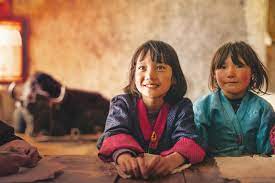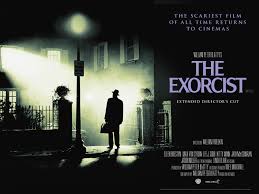
Rethinking Comparisons
Many self-helpers advise “not to compare yourself to others.”
I believe that’s good advice, at least when comparing yourself to people you perceive to be better off – financially, emotionally or physically. But what about those you see as being worse off?
Many of us of a certain age received an admonition from our parents when we didn’t “clean our plate” to the effect, “Think of all the poor children in Africa who don’t have enough to eat.”
Today, we may scoff at that idea, but I think we should rethink it. Isn’t it good to know how people – perhaps the vast majority of people on this earth – live? And shouldn’t that make us more grateful, more generous, less wasteful and better human beings?
$2 a Day
I think so. I have a sign on the bulletin board next to where I write these blogs. In 60-point type, it says: “Nearly 3 billion people live on less than $2 a day.” The sign has been there for at least 10 years, so the numbers may have changed, but the idea is to remind me, especially when I’m in a complaining mood, how much better I have it than most people. It helps put things in perspective.
I recently watched a movie on Netflix called “Lunana: A Yak in the Classroom.” If you watch only shoot-em-ups, crime or romance flicks, this isn’t for you. But if you’re into movies that are educational, and even inspirational, you may want to watch Lunana.
“This uplifting drama received Bhutan’s first-ever Oscar nomination for Best International Feature at the Academy Awards,” according to a promo on the movie’s web site.
It’s about a young man named Ugyen from Thimphu, Bhutan’s capital. Honestly, I had never heard of the city and only barely knew where Bhutan is. But like many people in what we refer to as “underdeveloped countries,” Ugyen yearns for the “good life” and glamour of developed western countries.
Seeks Fashionable Clothing
He’s glued to his cell phone and seeks out fashionable clothing. He’s been trained as a teacher by the government but is indifferent about teaching. Instead, he wants to move to Australia and become a singer.
But the government insists that he fulfill his obligation and sends him to teach in one of its most remote, poorest villages. At an altitude of nearly 15,000 feet, breathing would be hard for many people, and there is no electricity, cell-phone service or plumbing. There are no roads and getting there requires a hike of eight hours from the nearest village. Herding yaks is the principal occupation. Villagers eat yaks, milk them and use their dung for heating.
But after a few difficult months, Ugyen begins to see the villagers – who are not actors – as they are: honest, simple people who value education and honor teachers.
What Is Really Important
The setting reminded me of Bolivia, where I worked as a priest in the 1970s. I also lived in an isolated, poor village with no electricity or plumbing, where people actually look much like the people of the Himalayas. And the Bolivians, too, possessed an innocence that required you to consider what is really important in life, a lesson I often forget.
The movie also reminded me of the experience of parishioners of the Iowa church I attend. We have a long-time relationship with a poor, rural part of El Salvador. We mainly supply “scholarships” that provide money for kids to go to high school, and in some cases, college, and we try to visit them every few years.
The visits have had a profound effect on our Iowa parishioners, seeing first-hand how people live in a poor country, resulting in empathy for people who maintain hope in seemingly hopeless circumstances as well as getting a better understanding of the reasons why people emigrate.
So, I believe it’s a good idea to compare yourself to others when it results in more gratitude, more humility and a greater sense of empathy and solidarity for and with others.






